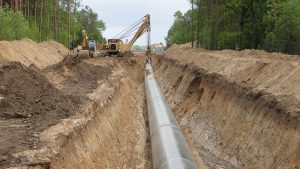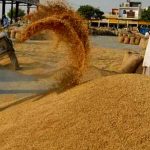
IMF Projects Economic Growth Surge for Nepal in Upcoming Fiscal Year

The International Monetary Fund (IMF) has praised Nepal for its ongoing progress and significant reforms, projecting an economic growth of 4.9 percent for the Fiscal Year 2024/25, driven by stronger domestic demand.
In a statement released on Thursday, the IMF noted that Nepal’s economic activity is expected to rise due to enhanced domestic demand, alongside substantial fiscal and administrative reforms. The global financial institution highlighted the approval of a Domestic Revenue Mobilisation Strategy by the Ministry of Finance aimed at boosting tax collection, and an action plan by the National Planning Commission (NPC) focused on improving the execution of budgeted capital projects.
The IMF acknowledged advancements in fiscal transparency, including the incorporation of Extra Budgetary Funds accounts in annual financial statements and the publication of audited financial statements for key public enterprises.
Further reforms to strengthen Nepal’s banking sector have also been recognized. These include the finalisation and implementation of the Supervisory Information System for banks and the procurement of an international consultant to assist Nepal Rastra Bank with a Loan Portfolio Review of the ten largest banks, aimed at enhancing the assessment of bank asset quality and credit risk management.
Despite these achievements, the IMF projected a growth of only 3 percent for the upcoming fiscal year, noting it remains below potential due to subdued domestic demand and post-pandemic economic recovery efforts. However, inflation has seen a significant decrease from a peak of 8.6 percent in September 2022 to 4.6 percent in April 2024, aided by timely policy actions, favourable commodity prices, and low domestic demand.
Challenges persist, with the fiscal space for development spending limited and the tax-to-GDP ratio still below pre-pandemic levels. Additionally, banks’ non-performing loans have doubled since August 2022 to 4.0 percent in April 2024, and the financial health of the savings and credit cooperatives sector has deteriorated.
Despite these challenges, Nepal’s external position remains strong, reflecting prudent policies, robust remittance inflows, and subdued imports. The IMF projects that a cautiously accommodative monetary policy stance, increased capital expenditure in the upcoming budget, additional hydropower generation, and a rise in tourist arrivals will boost domestic demand and support the projected 4.9 percent growth.
Inflation is expected to remain within Nepal Rastra Bank’s target ceiling of 5.5 percent, and the medium-term outlook for Nepal remains favorable. Strategic investments in infrastructure, particularly in the energy sector, are expected to drive potential growth, underpinning a positive economic trajectory for the country.












Comments